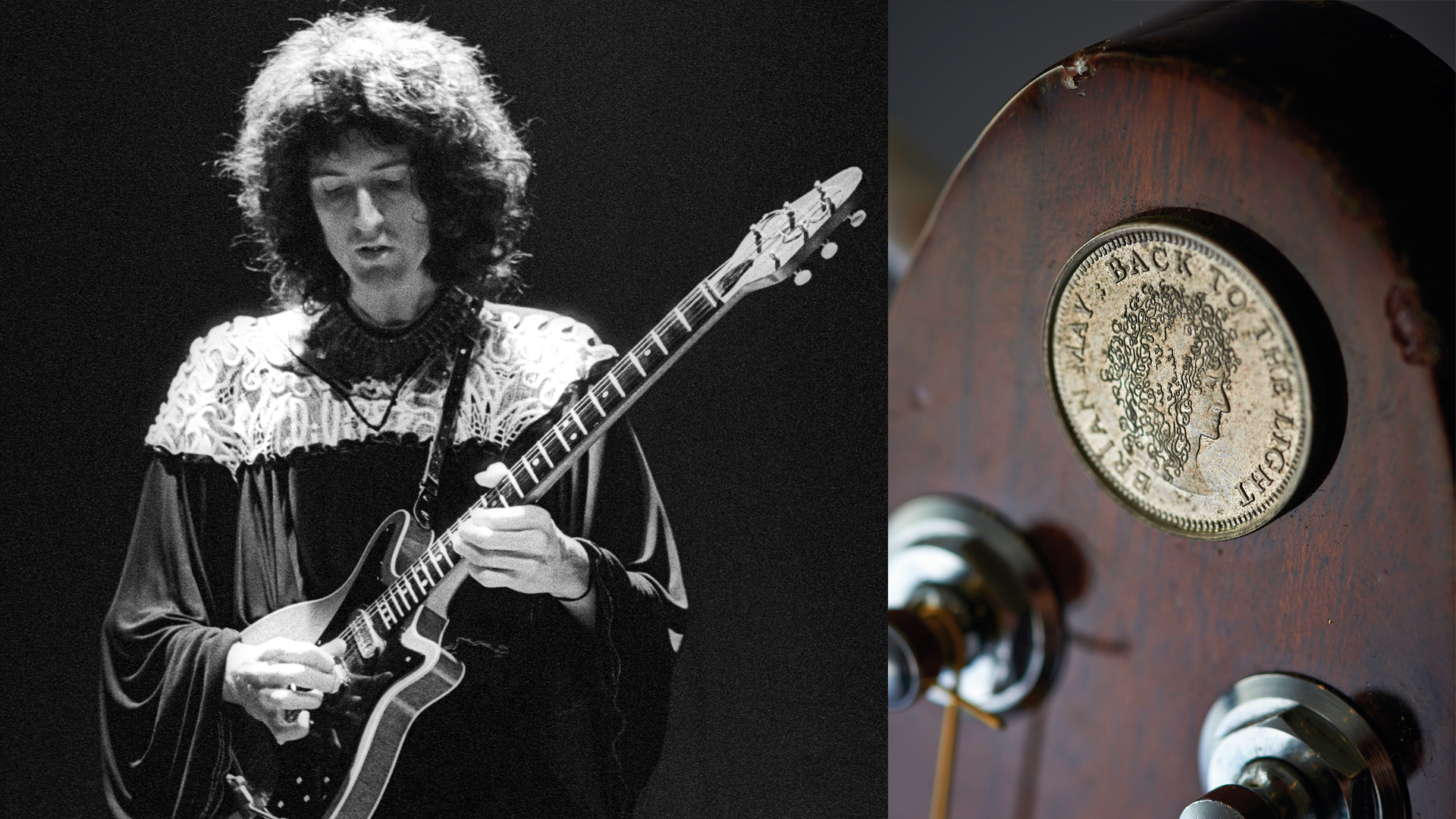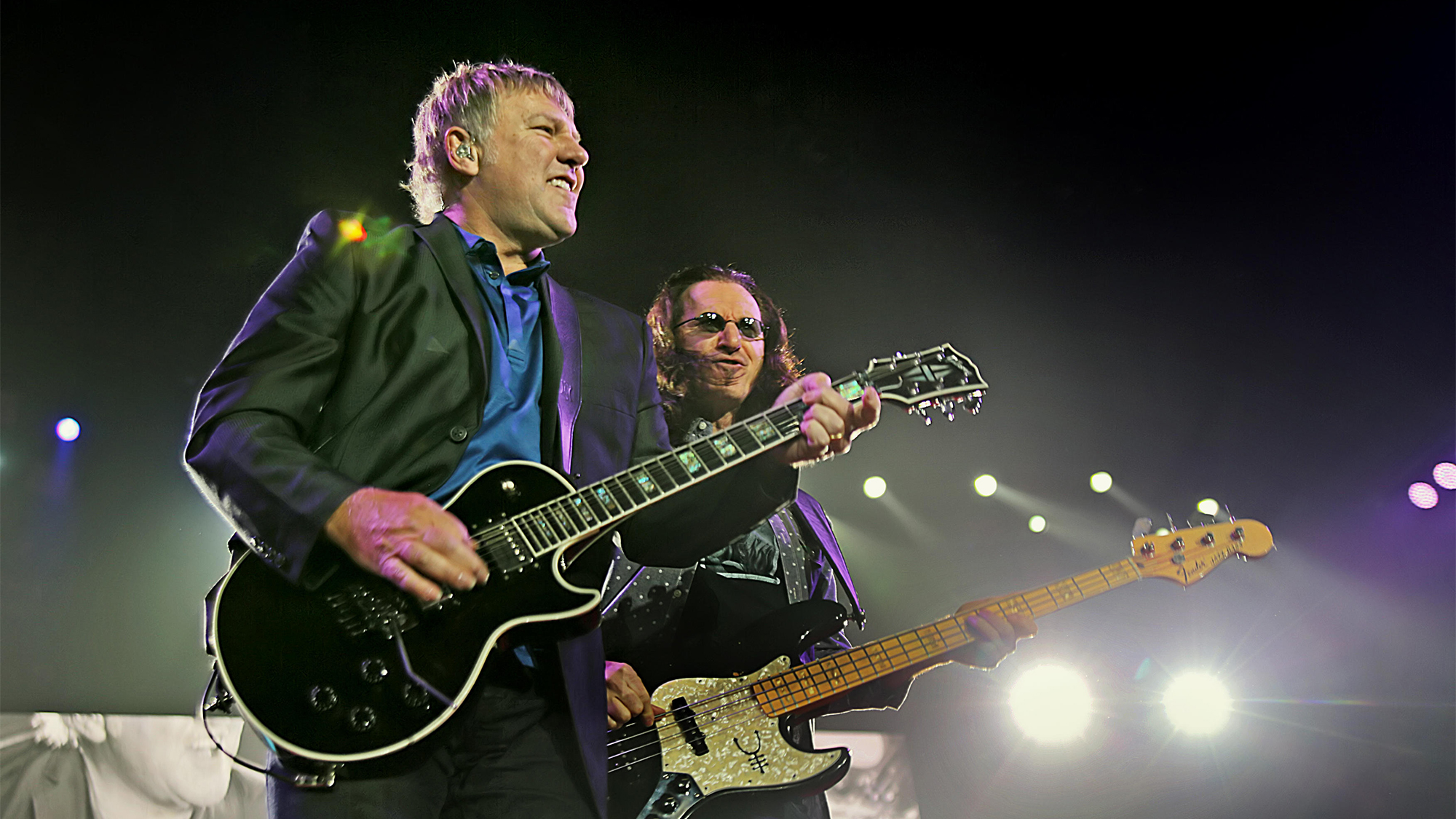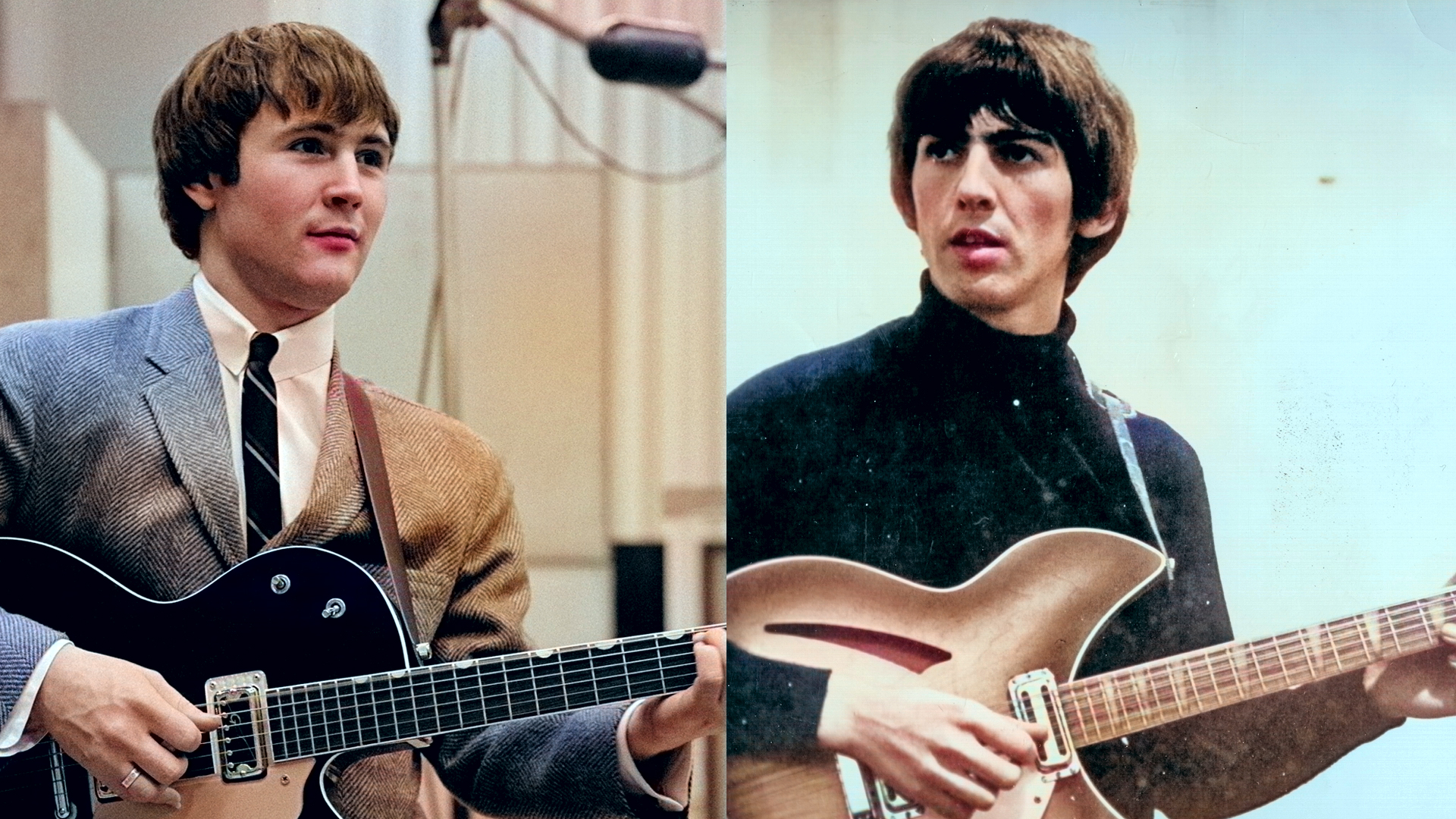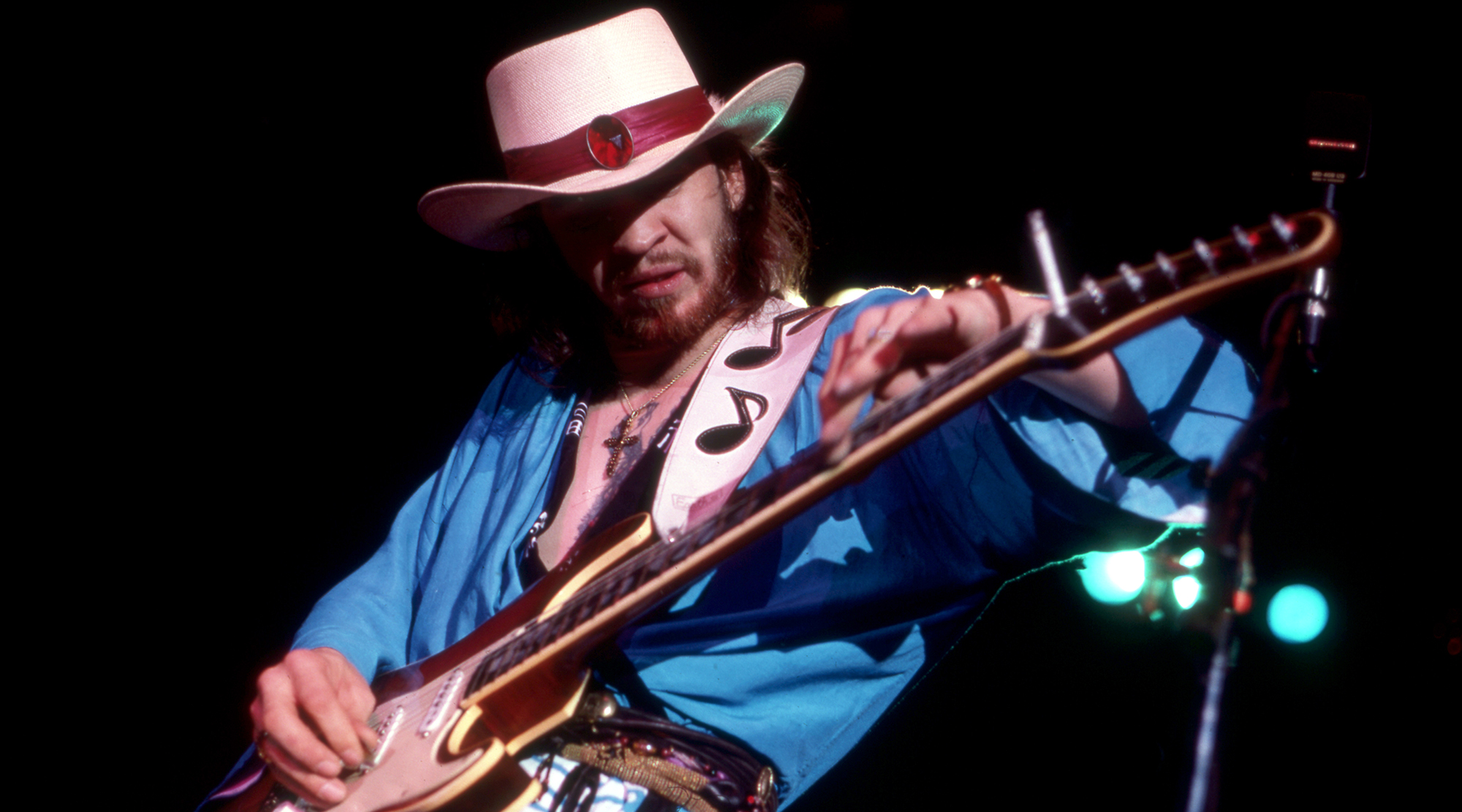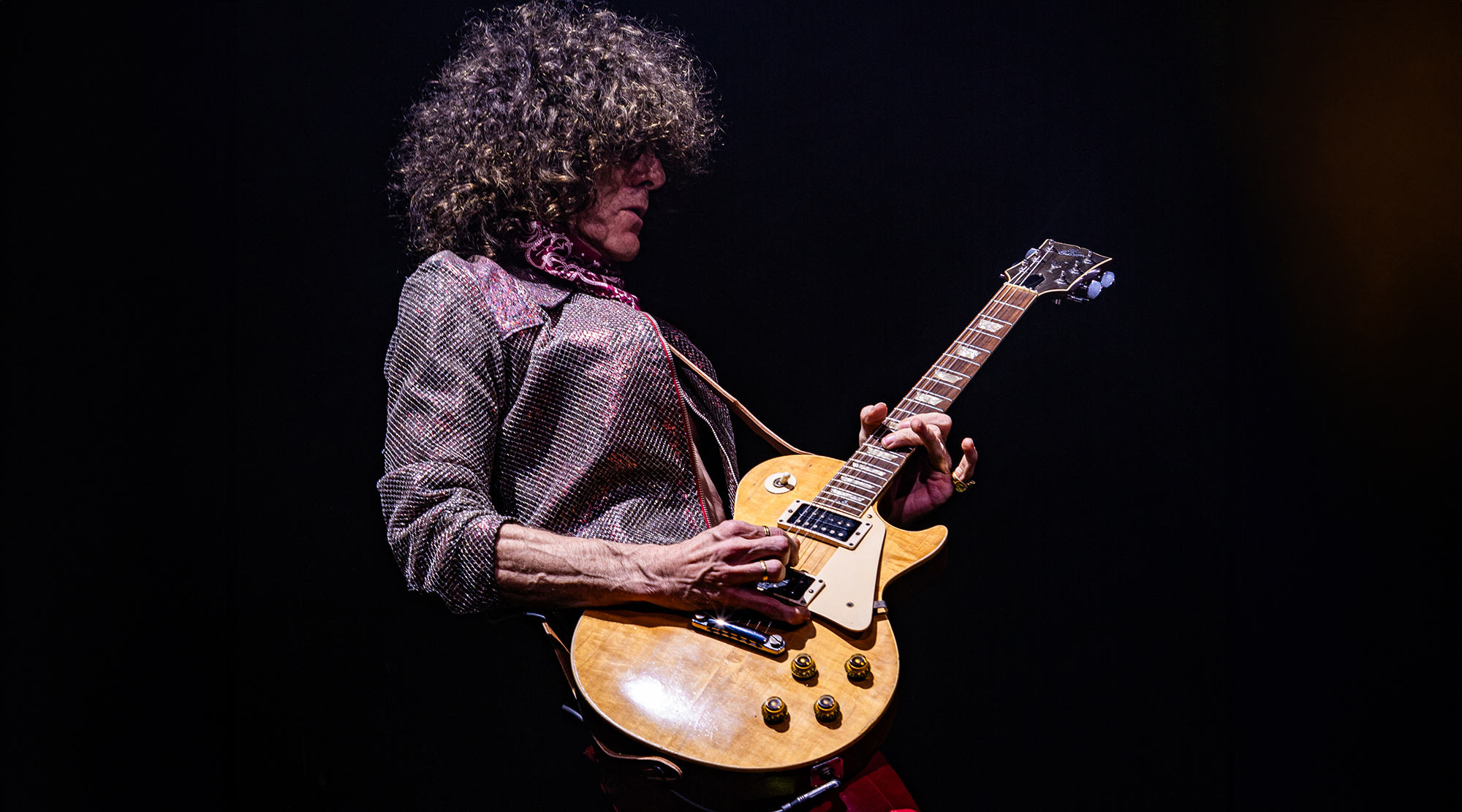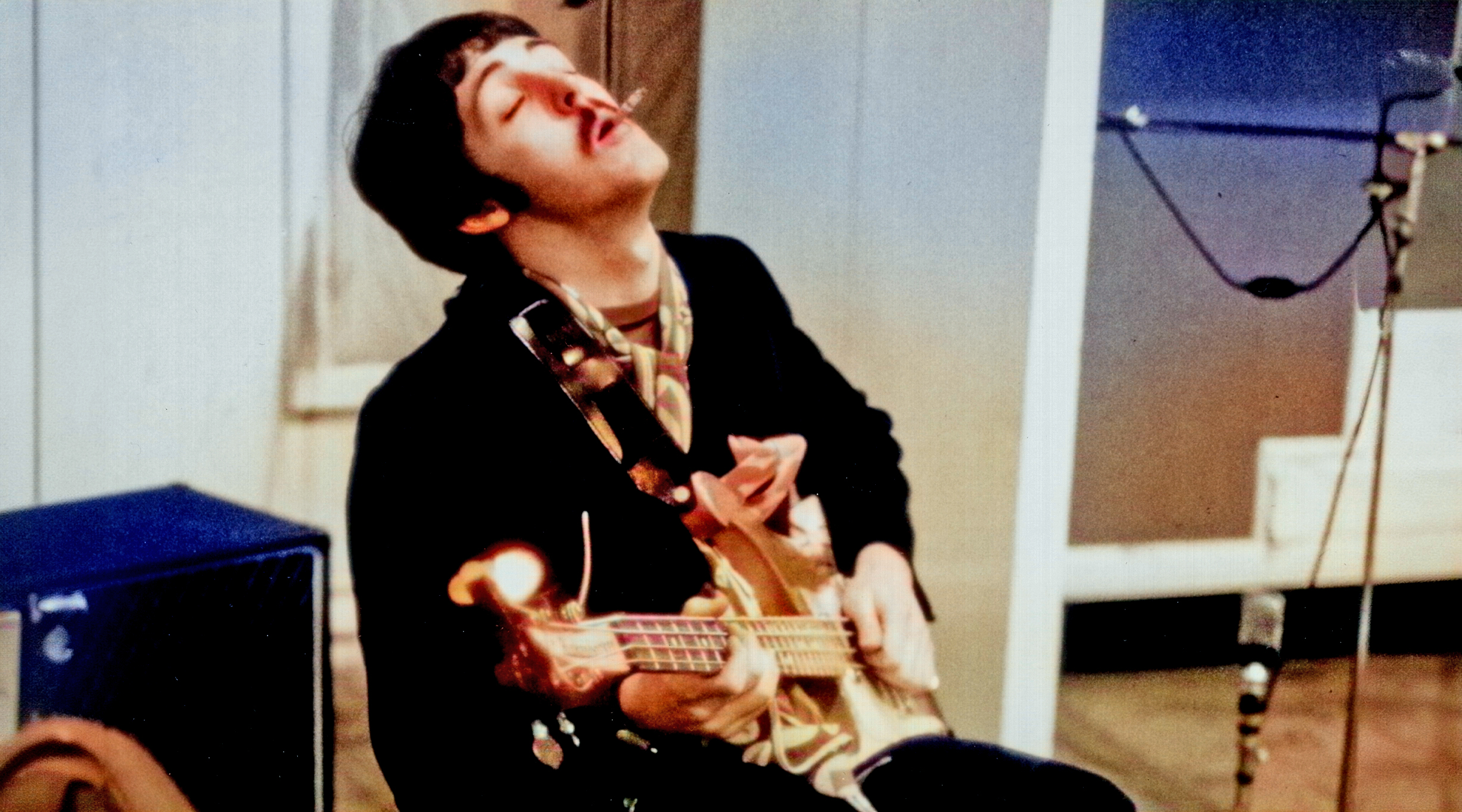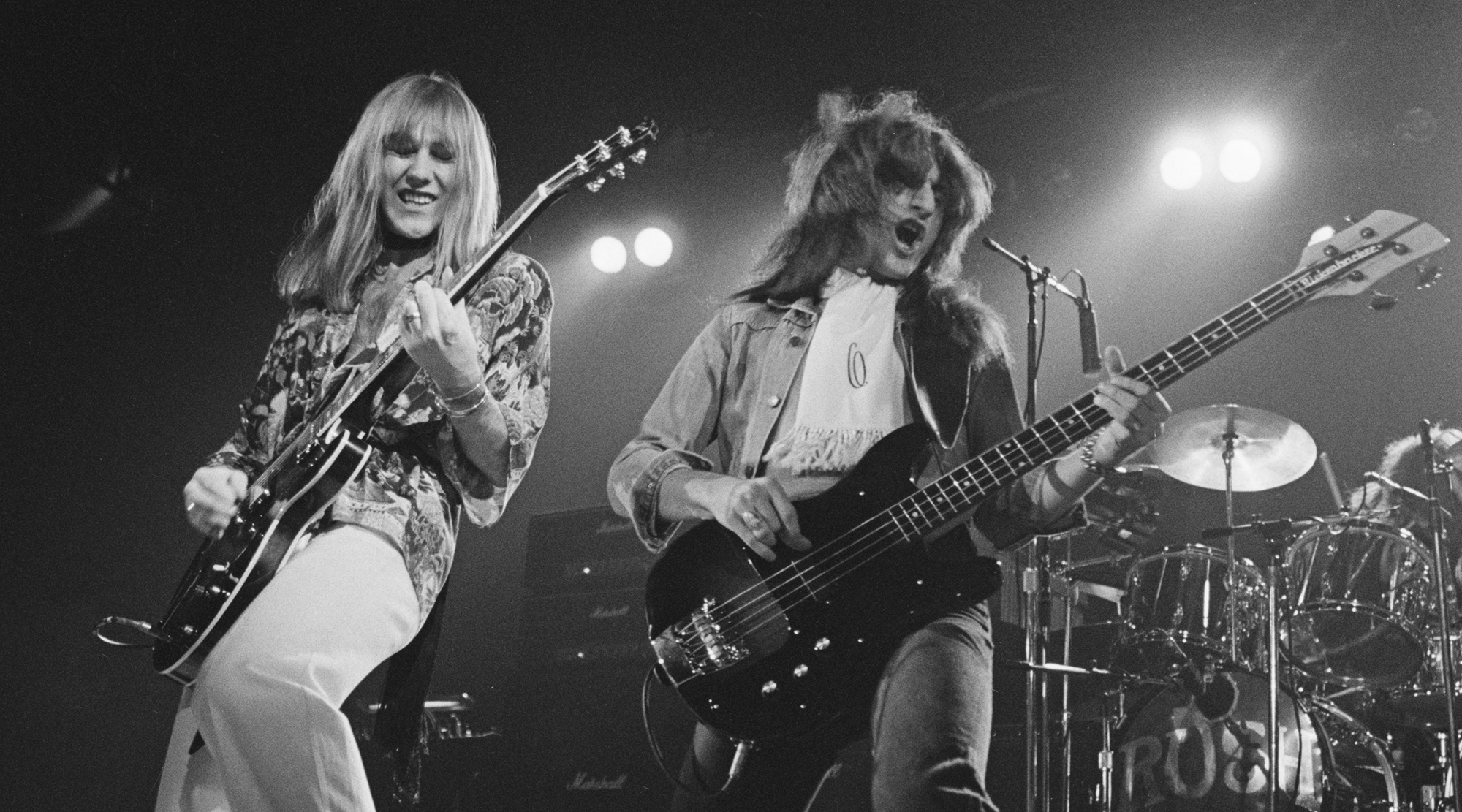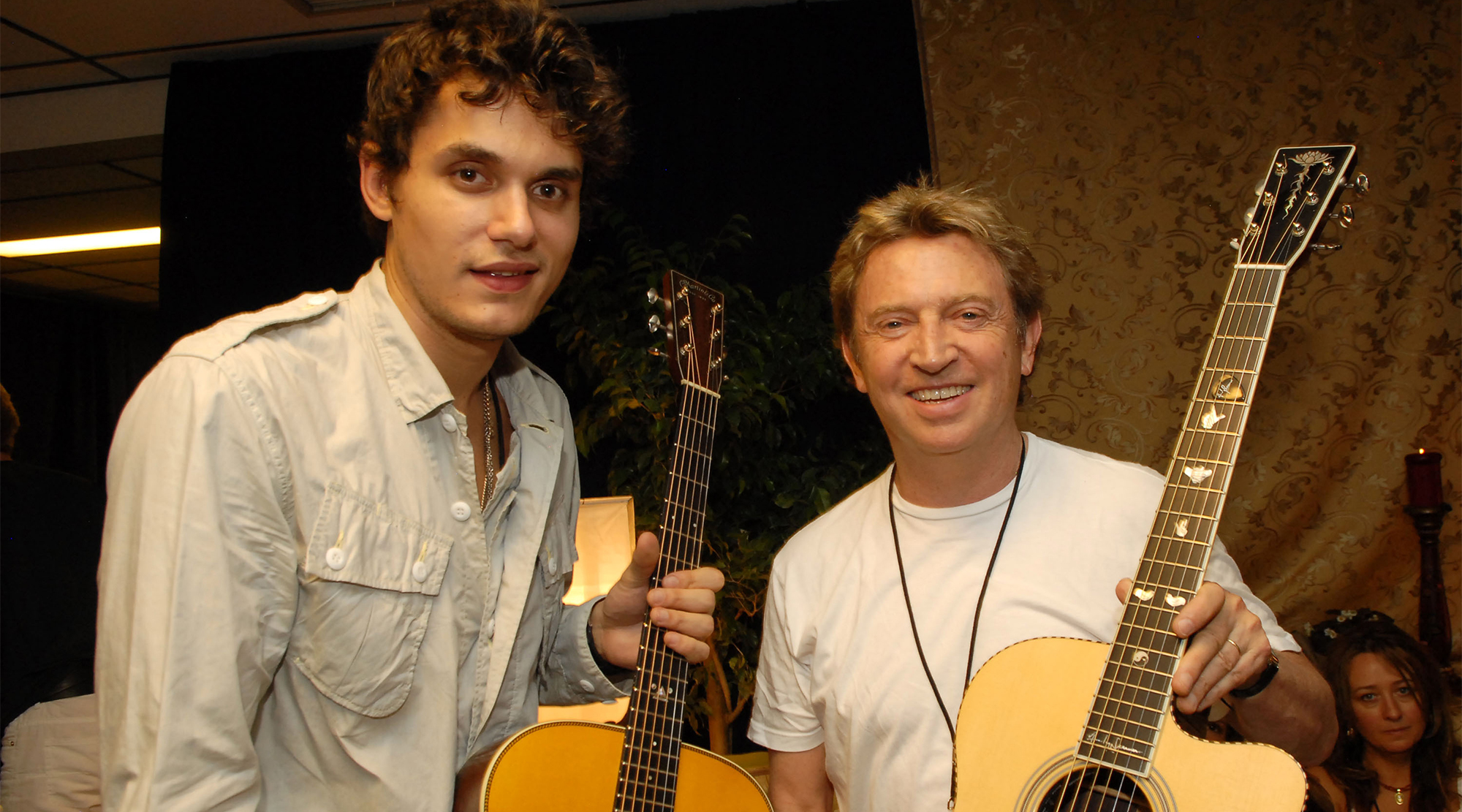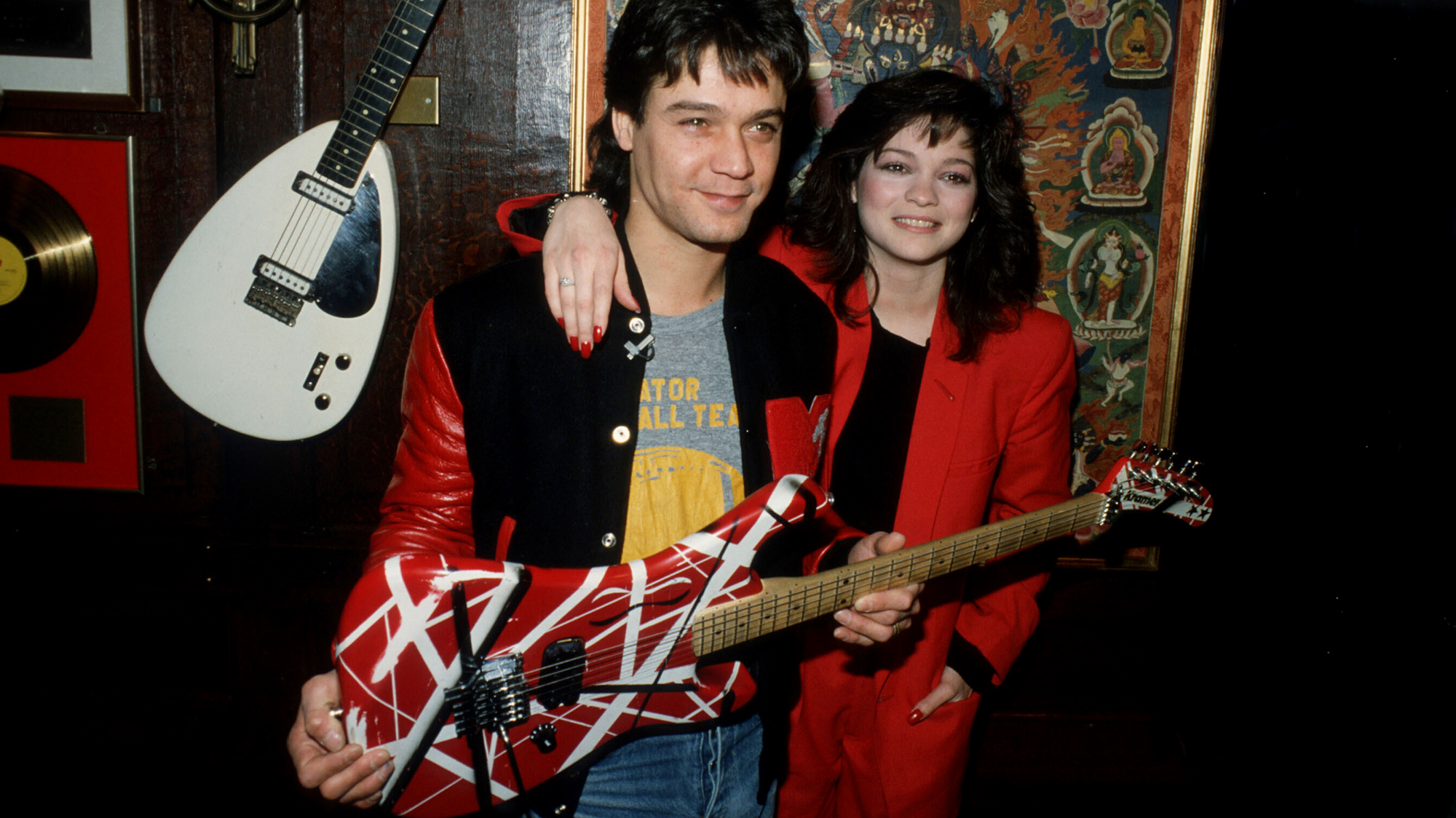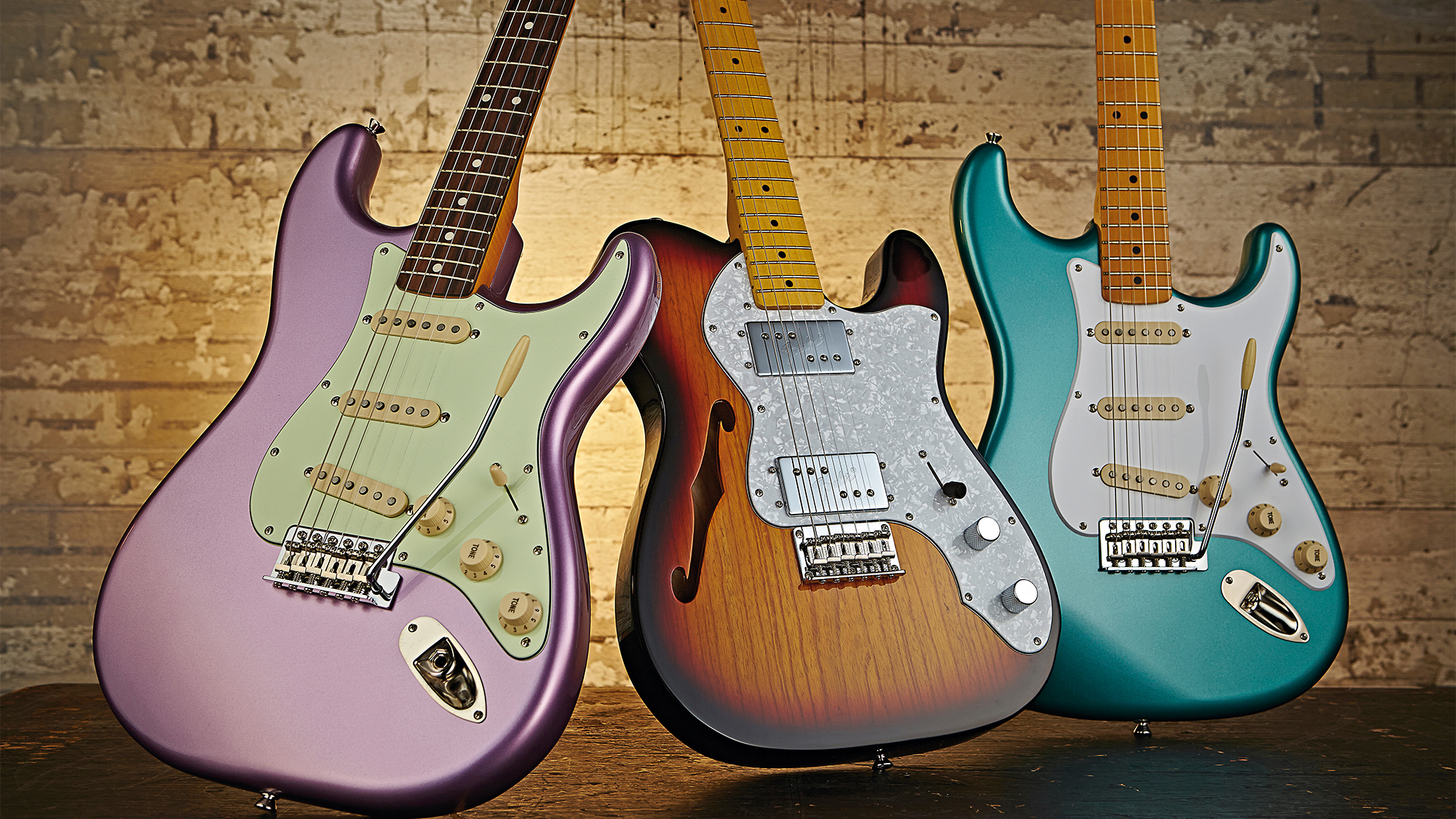“I really feel that I can bring out the best in you and bring back the balls in rock ‘n’ roll.” John Lennon invited Eric Clapton to help him start a rock band in 1971. His letter is a reminder of the many times they'd already played together
Lennon's letter, now headed to auction, was in part an attempt to help Clapton out of his heroin addiction
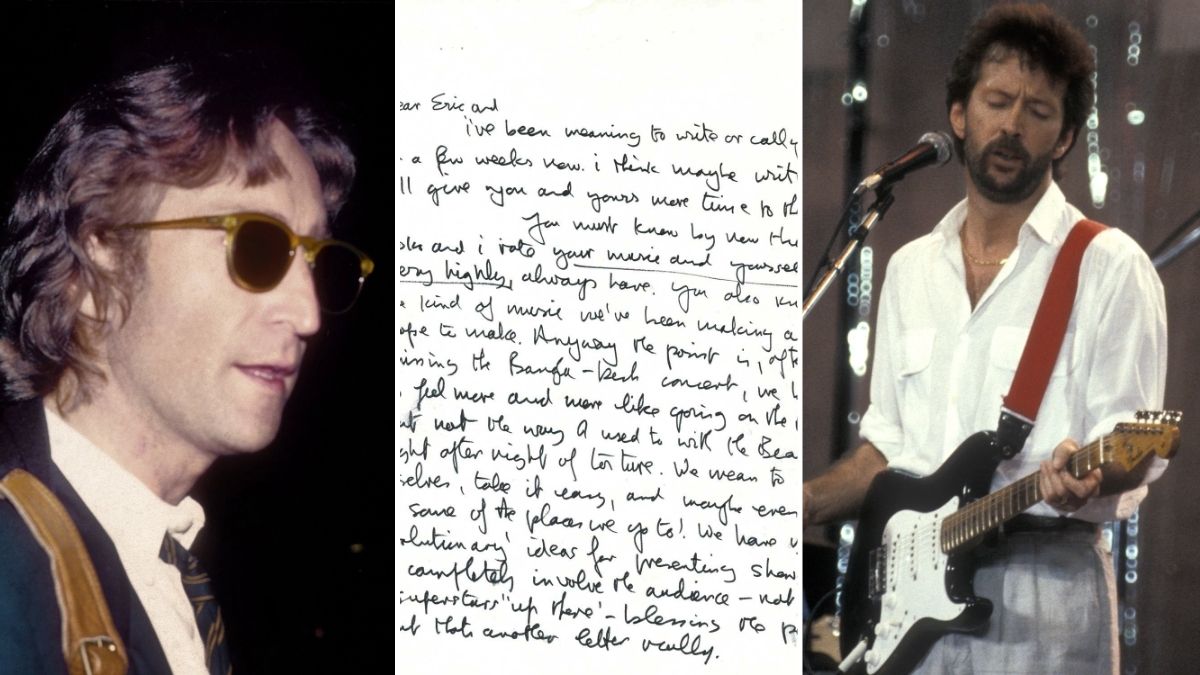
Two years after quitting the Beatles, John Lennon wrote a letter to Eric Clapton asking the blues icon to help him form a new band.
The eight-page handwritten letter, dated September 29, 1971, is now headed to auction via International Autograph Auctions Europe SL.
But while its value as a historic rock artifact is obvious, the letter also serves as a reminder of Lennon's long relationship with Clapton, one which had seen the men perform in two other bands well before the document was drafted.
Clapton, a close friend of the Fab Four, was no stranger to Lennon. In addition to playing on George Harrison's 1968 White Album cut "While My Guitar Gently Weeps," he had joined Lennon in a pickup group called the Dirty Mac (which included Keith Richards on bass and Mitch Mitchell on drums) for the Rolling Stones' December 1968 Rock and Roll Circus. Lennon had even floated the idea of bringing Slowhand into the Beatles when Harrison briefly quit the group during the making of Let It Be in January 1969.
Lennon finally snared Clapton in September of that year as the lead guitarist in Lennon and Ono's Plastic Ono Band, a team-up captured on the album Live Peace in Toronto 1969.
Now, with the Beatles well behind him, Lennon wanted to take their partnership one step further.
“You must know by now that Yoko and I rate your music and yourself very highly, always have,” Lennon wrote in his letter. "I really feel that I/we can bring out the best in you — (some kind of security financial or otherwise will help) but the main thing is the music.”
Get The Pick Newsletter
All the latest guitar news, interviews, lessons, reviews, deals and more, direct to your inbox!
Interestingly, Lennon had mentally drafted the full lineup as if it were a fantasy football team, one that would include musician friends like bassist Klaus Voormann, drummer Jim Keltner, keyboardist Nicky Hopkins and producer Phil Spector. “I consider Klaus, Jim, Nicky, Phil, Yoko, you could make the kind of sound that could bring back the balls in rock ‘n’ roll,” he continued.
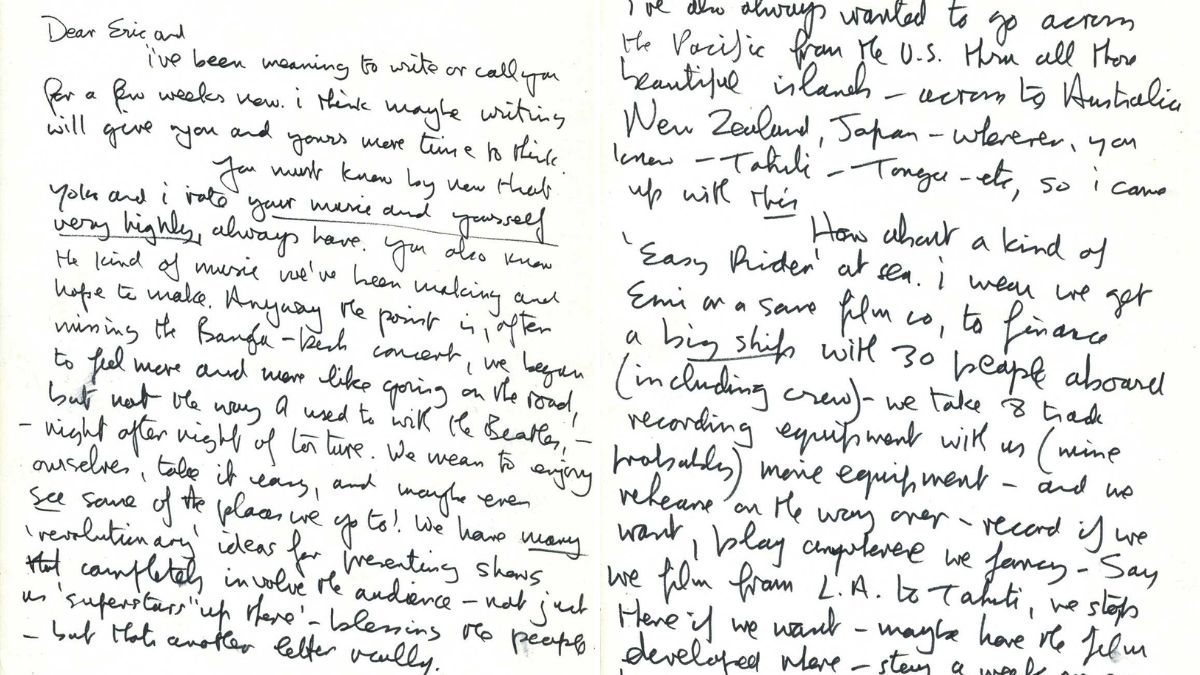
Voormann, who played bass on Lennon's 1970 solo debut and later performed on Lou Reed's Transformer, had a long-standing relationship with the Beatles dating back to their Hamburg days.
Keltner had worked with Joe Cocker and played at George Harrison's August 1971 Concert for Bangladesh, while Hopkins had performed on the Beatles' "Revolution" single, on Lennon and Ono's "Happy Xmas (War Is Over)" and Lennon's Imagine album. Spector, who had produced the Beatles' Let It Be and Lennon's first three solo records, was presumably set to play a management or production role in the band.
At this point, Eric Clapton’s latest project, Derek and the Dominos, had recently disbanded and the guitarist was in the grips of a heroin addiction. Lennon seemed to recognize this and wanted to offer Clapton a fresh outlet.
“Both of us have been thru the same kind of shit/pain that I know you’ve had,” the letter continues. “I know we could help each other in that area — but mainly Eric — I know I can bring out something great — in fact greater in you that has been so far evident in your music.
“I think it could only do good for you to work with people who love and respect you.”
Clapton, despite his close relationship with Lennon, ultimately declined his offer.
The letter is expected to sell for up to €150,000 (approx $159,000).
Head to International Autograph Auctions Europe SL for more.
A freelance writer with a penchant for music that gets weird, Phil is a regular contributor to Prog, Guitar World, and Total Guitar magazines and is especially keen on shining a light on unknown artists. Outside of the journalism realm, you can find him writing angular riffs in progressive metal band, Prognosis, in which he slings an 8-string Strandberg Boden Original, churning that low string through a variety of tunings. He's also a published author and is currently penning his debut novel which chucks fantasy, mythology and humanity into a great big melting pot.
“I did the least commercial thing I could think of.” Ian Anderson explains how an old Dave Brubeck jazz tune inspired him to write Jethro Tull’s biggest hit
"This 'Bohemian Rhapsody' will be hard to beat in the years to come! I'm awestruck.” Brian May makes a surprise appearance at Coachella to perform Queen's hit with Benson Boone
![The Dirty Mac - Yer Blues (Official Video) [4K] - YouTube](https://img.youtube.com/vi/JeFwaWFTGYU/maxresdefault.jpg)


